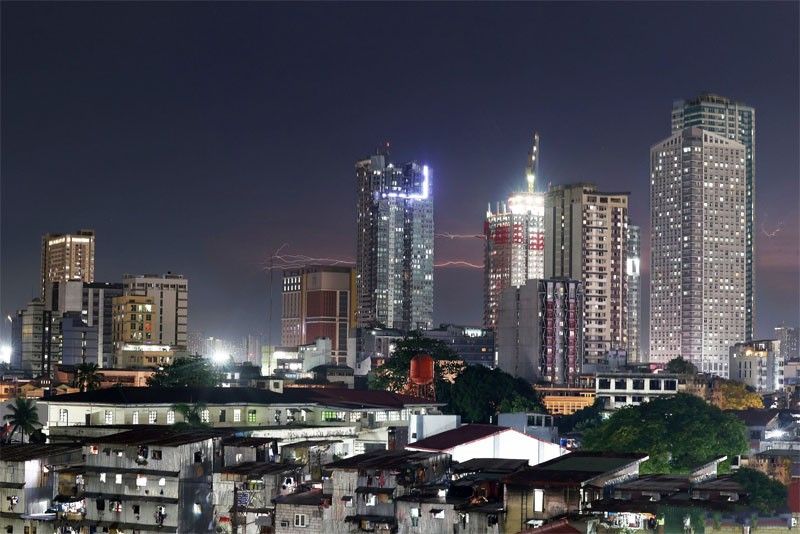Foreign think tanks cut growth forecasts for Philippines

MANILA, Philippines — Foreign think tanks adjusted downward their growth forecasts for the Philippines as the target for this year set by economic managers is now beyond reach due to the disappointing outturn in the second quarter.
BMI Country Risk & Industry Research slashed its growth forecast to 5.3 percent from the earlier estimate of 5.9 percent for this year, way below the six to seven percent target penned by the Cabinet-level Development Budget Coordination Committee.
In its latest report, BMI said the latest gross domestic product (GDP) growth of 4.3 percent in the second quarter from 6.4 percent in the first quarter showed that the Philippine economy was weaker than originally anticipated.
“Philippine growth came in below our expectations at 4.3 percent year-on-year in Q2, which led us to revise down our full-year real GDP forecast from 5.9 percent to 5.3 percent,” BMI said.
BMI, a Fitch Solutions company, said the economy would continue to face several headwinds including high interest rates, weaker external sector as well as adverse weather conditions brought about by El Niño.
“Growth is set to slow against the backdrop of elevated inflation, high interest rates, and weak external demand,” BMI said.
BMI said the Philippine economy would remain lackluster as domestic activity is affected by tight credit conditions after the Bangko Sentral ng Pilipinas (BSP) raised interest rates by 425 basis points to tame inflation and stabilize the peso.
As inflation softened for the sixth straight month to 4.7 percent in July from a peak of 8.7 percent in January, the BSP’s Monetary Board has extended its prudent pause by keeping interest rates on hold in May and June.
“While we think that inflation will continue to ease over the coming months we think that the BSP will leave its key policy rate at 6.25 percent until H124 and only loosen policy gradually over the course of next year,” BMI said.
Furthermore, it warned that the country’s agriculture sector would falter over the remainder of the year after being devastated by Typhoons Egay and Falcon, destroying over P1.3 billion worth of crops and damaging P2.7 billion worth of infrastructure.
“Compounding these challenges, the upcoming onset of El Niño, which often entails drier-than-usual conditions across a significant portion of Southeast Asia, is projected to intensify from Q423 to Q124,” BMI said.
According to BMI, the development would have negative implications for the Philippine agricultural sector, an integral component that typically contributes around 10 percent to the nation’s overall output.
Likewise, UK-based think tank Pantheon Macroeconomics also lowered its growth projections for the Philippines to 4.5 percent from 5.5 percent for 2023 and to four percent from five percent for 2024.
Pantheon Macroeconomics chief emerging Asia economist Miguel Chanco and senior Asia economist Moorthy Krshnan said the revised forecasts are lower than the government target of six to seven percent for this year and 6.5 to eight percent for next year.
The economists said the GDP growth forecasts were revised in light of what they described as an abysmal economic growth performance in the second quarter.
“We now expect the economy to suffer a shallow technical recession, which entails two straight quarters of negative growth,” the economists said.
The Pantheon economists said a material pickup in private consumption, which serves as the main engine of the Philippine economy, is unlikely heading into 2024, even as inflation is on a downtrend.
The economists said household finances took a significant hit due to the COVID-19 pandemic, and this only deepened last year due to the global cost-of-living crisis.
They said the consumers’ move to turn to debt for their spendings as savings run thin would not be sustainable given the BSP tightening of monetary policy.
“The other pillar of support (remittances) is breaking down, too,” the economists said.
Data from the BSP showed personal remittances from Filipinos abroad grew by 2.9 percent to $2.78 billion in May from $2.7 billion in the same month last year, but the growth was slower than the 3.8 percent increase in the previous month.
In terms of investments, the economists said the outlook for capital expenditures also remains poor, citing the lagged impact of the BSP’s rate hikes.
“All told, we’re now more convinced than ever that the BSP will start cutting rates in the fourth quarter,” they said.
- Latest
- Trending





























